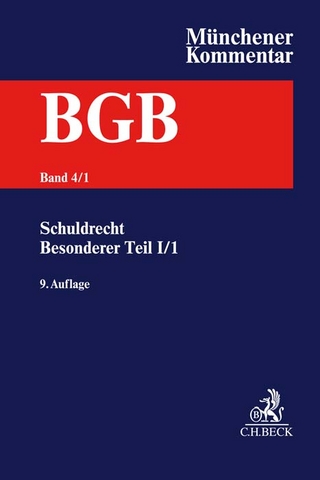
Contract Interpretation in Investment Treaty Arbitration
Martinus Nijhoff (Verlag)
978-90-04-41467-9 (ISBN)
Contracts are relevant, frequently central, for a significant number of investment disputes. Yet, the way tribunals ascertain their content remains largely underexplored. How do tribunals interpret contracts in investment treaty arbitration? How should they interpret contracts? Does national law have any role to play? Contract Interpretation in Investment Treaty Arbitration: A Theory of the Incidental Issue addresses these questions. The monograph offers a valuable insight into the practice and theory of contract interpretation in investment treaty arbitration. By proposing a theoretical frame for seamless integration of contract interpretation into the overall structure of decision-making, the book contributes to predictability, coherence, sufficiency and correctness of the tribunals’ interpretative practices in investment treaty arbitration.
Yuliya Chernykh, Ph.D. University of Oslo, is Associate Professor of the Inland Norway University of Applied Sciences. She is Chartered Arbitrator and an author of various publications in the fields of international law, international arbitration and legal history.
Foreword
Acknowledgements
List of Figures and Tables
Abbreviations
Introduction
part 1
Setting the Scene
1 Overview of Contract Interpretation in Investment Treaty Arbitration
1.1 Interpretative Material: Contracts and Contractual Provisions
1.2 Interpretative Occasions
1.2.1 Jurisdiction
1.2.2 Attribution
1.2.3 Expropriation
1.2.4 Fair and Equitable Treatment
1.2.5 National Treatment and Most-Favoured-Nation Treatment
1.2.6 The Umbrella Clause
1.2.7 Compensation
1.3 Procedural Setting
1.4 Patterns for Contract Interpretation
1.5 Conclusion
part 2
Defining a Relevant Legal Frame
2 National Laws and Contract Interpretation
2.1 What Do We Know: Comparative Scholarship
2.2 The Concept of Contract Interpretation
2.3 Regulation
2.4 Interpretative Approaches: Good Faith and Predictability
2.5 Limits of Subjective-Objective and Other Dichotomies
2.6 Conclusion
3 International Law and Contract Interpretation
3.1 The Concept of International Law
3.2 Treaties
3.2.1 Rules on Treaty Interpretation
3.2.2 International Investment Agreements
3.2.3 Uniform Private Law Conventions
3.3 Customary International Law
3.4 General Principles of Law
3.5 Subsidiary Means for Determining the Content of International Law
3.5.1 Judicial Practice
3.5.2 Scholarly Publications
3.6 Conclusion
part 3
Enabling National Law
4 The Power of Treaty-Based Tribunals to Interpret Contracts
4.1 Theory and Foundation
4.1.1 The Concept and Types of Tribunal Powers
4.1.2 Contract Interpretation as an Inherent Power
4.1.3 Contract Interpretation as an Implied Power
4.2 Exercise
4.2.1 Contract Interpretation or Fact-Finding
4.2.2 Contract Interpretation or Doctrinal Assessment of Contractual Provisions under International Law
4.2.3 Deference
4.3 In a Broader Context
4.3.1 Similar Powers
4.3.1.1 The PCIJ
4.3.1.2 The ICJ
4.3.1.3 The ECtHR
4.3.2 Unsuitable Analogies
4.4 Conclusion
5 Contract Interpretation as the Incidental Issue
5.1 Incidental Issues in Private International Law
5.2 National Law Incidental Issues in Investment Treaty Arbitration
5.2.1 The Predisposition to Conceptualise Incidental Issues
5.2.2 Scholar Attempts to Conceptualise National Law Issues as Incidental Issues
5.2.3 Other Supporting Considerations (1): Direct Conceptualisation – National Law Incidental Issues before Other Public International Law Courts
5.2.4 Other Supporting Considerations (2): Reverse Conceptualisation – Public International Law Incidental Issues in Domestic Contexts
5.2.5 Contribution of Conceptualising National Law Issues as Incidental Issues
5.3 Contract Interpretation as the Incidental Issue in Investment Treaty Arbitration
5.3.1 A Legal Issue
5.3.2 A Separable Legal Issue
5.3.3 Playing a Subsidiary Role to the Principal Cause of Action
5.3.3.1 The Case of Contract Termination
5.3.3.2 The Case of Implied Terms
5.3.4 Posing a Question about the Applicable Law
5.3.5 Additional Consideration: Cases with Compound Jurisdiction
5.4. National Law in Operation through the Concept of an Incidental Issue
5.4.1 Jura Novit Curia
5.4.2 Expert Testimony
5.4.3 Why Does It Matter?
5.5 Conclusion
General Conclusion
Future Research
List of Annexes
Annexes
Annex I All Known Treaty-Based Cases as of 30 January 2019
Annex II Cases Excluded from Assessment (Publicly Unavailable Awards
and Decisions, or Available Awards and Decisions in Languages
Other than English or Russian)
Annex III Cases with Publicly Available Awards and Decisions in English or Russian Language (the Basis for Assessment)
Annex IV Cases with Elements of Contract Interpretation
Annex V Cases with the Application of National Law to Contract Interpretation (Interpretative Rules of National Laws)
Annex VI Cases with the Application of National Law to Contract Interpretation (Interpretation in Light of Various Other Rules of National Laws)
Annex VII Model BITs as of 30 January 2019
Annex VIII List of Analysed BITs
Annex IX Provisions of Some Relevance for Contract Interpretation in the Selected Uniform Private Law Conventions
Annex X IIAs with Reference to Conflict of Laws of the Host State
Bibliography
Index
| Erscheinungsdatum | 28.01.2022 |
|---|---|
| Reihe/Serie | International Litigation in Practice ; 12 |
| Sprache | englisch |
| Maße | 155 x 235 mm |
| Gewicht | 1170 g |
| Themenwelt | Recht / Steuern ► EU / Internationales Recht |
| Recht / Steuern ► Privatrecht / Bürgerliches Recht ► Internationales Privatrecht | |
| ISBN-10 | 90-04-41467-3 / 9004414673 |
| ISBN-13 | 978-90-04-41467-9 / 9789004414679 |
| Zustand | Neuware |
| Haben Sie eine Frage zum Produkt? |
aus dem Bereich


